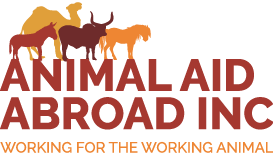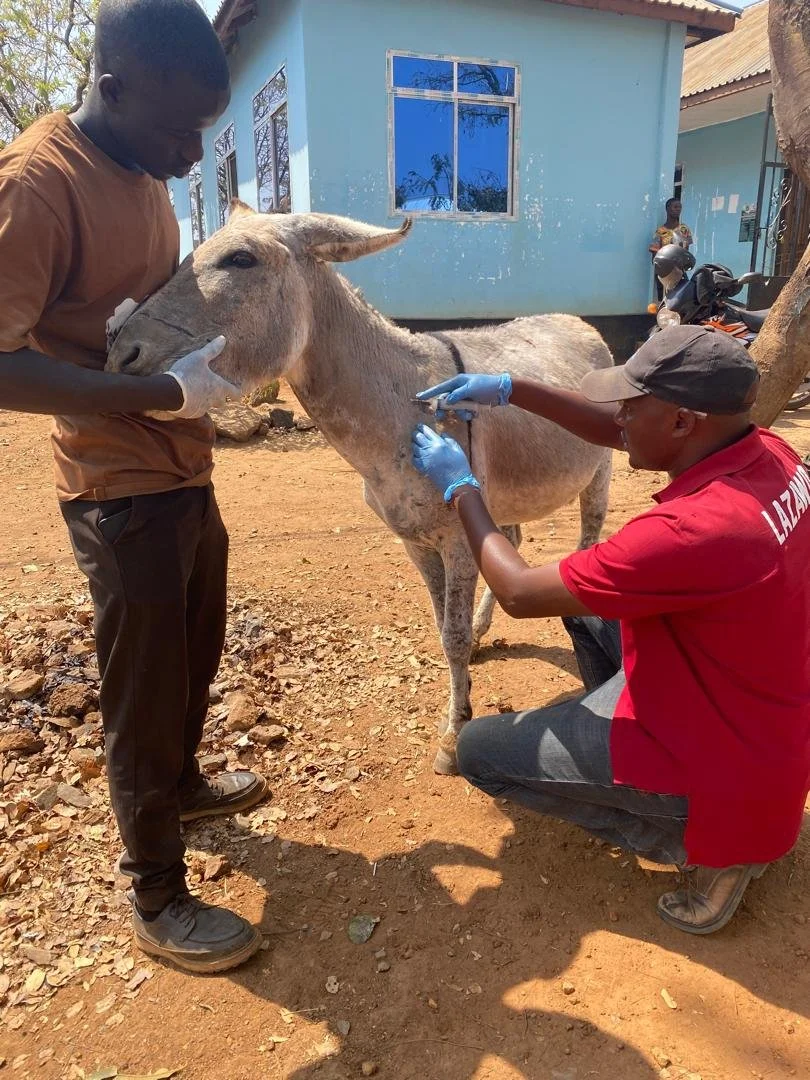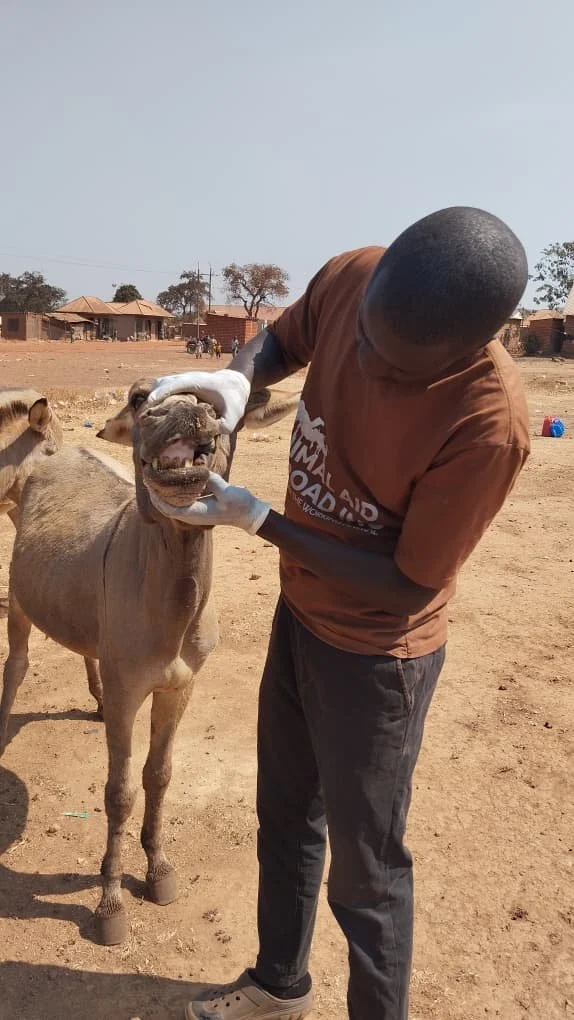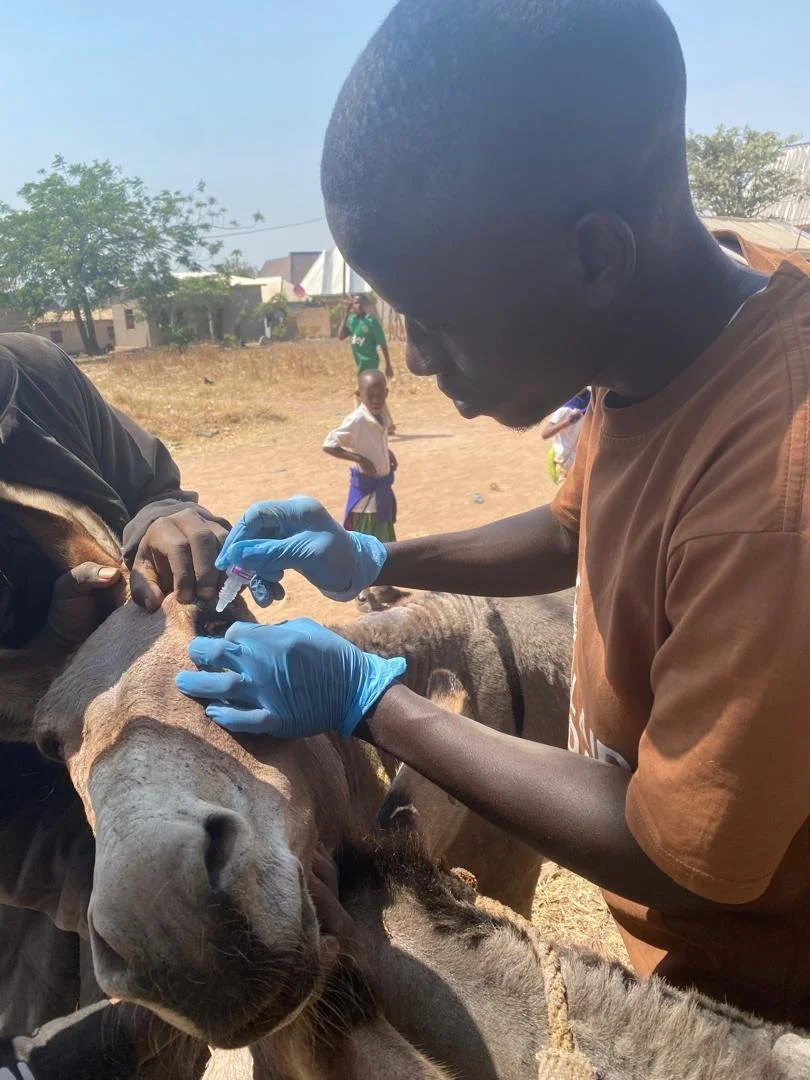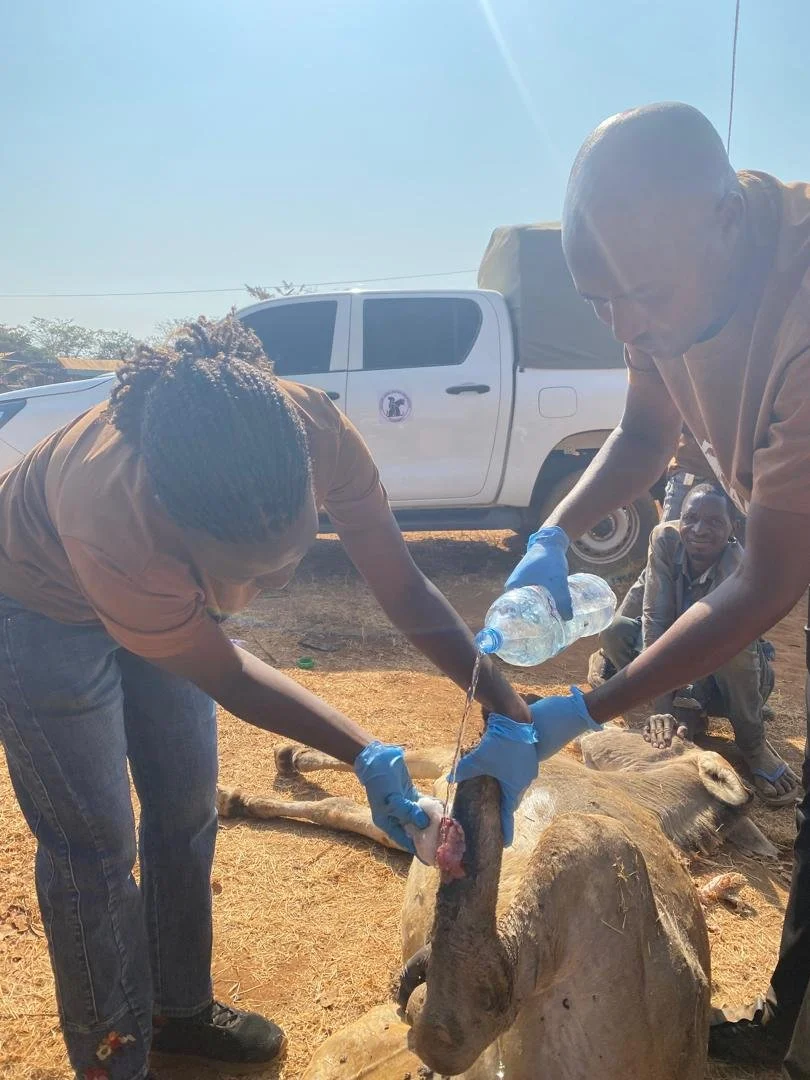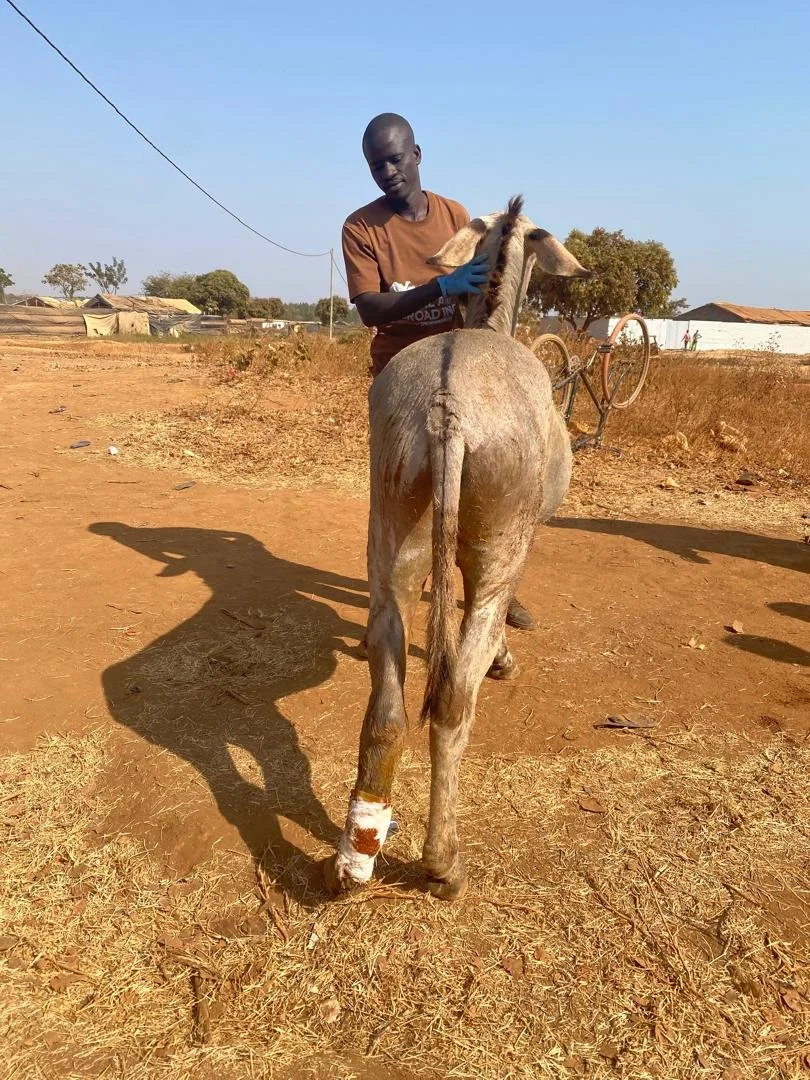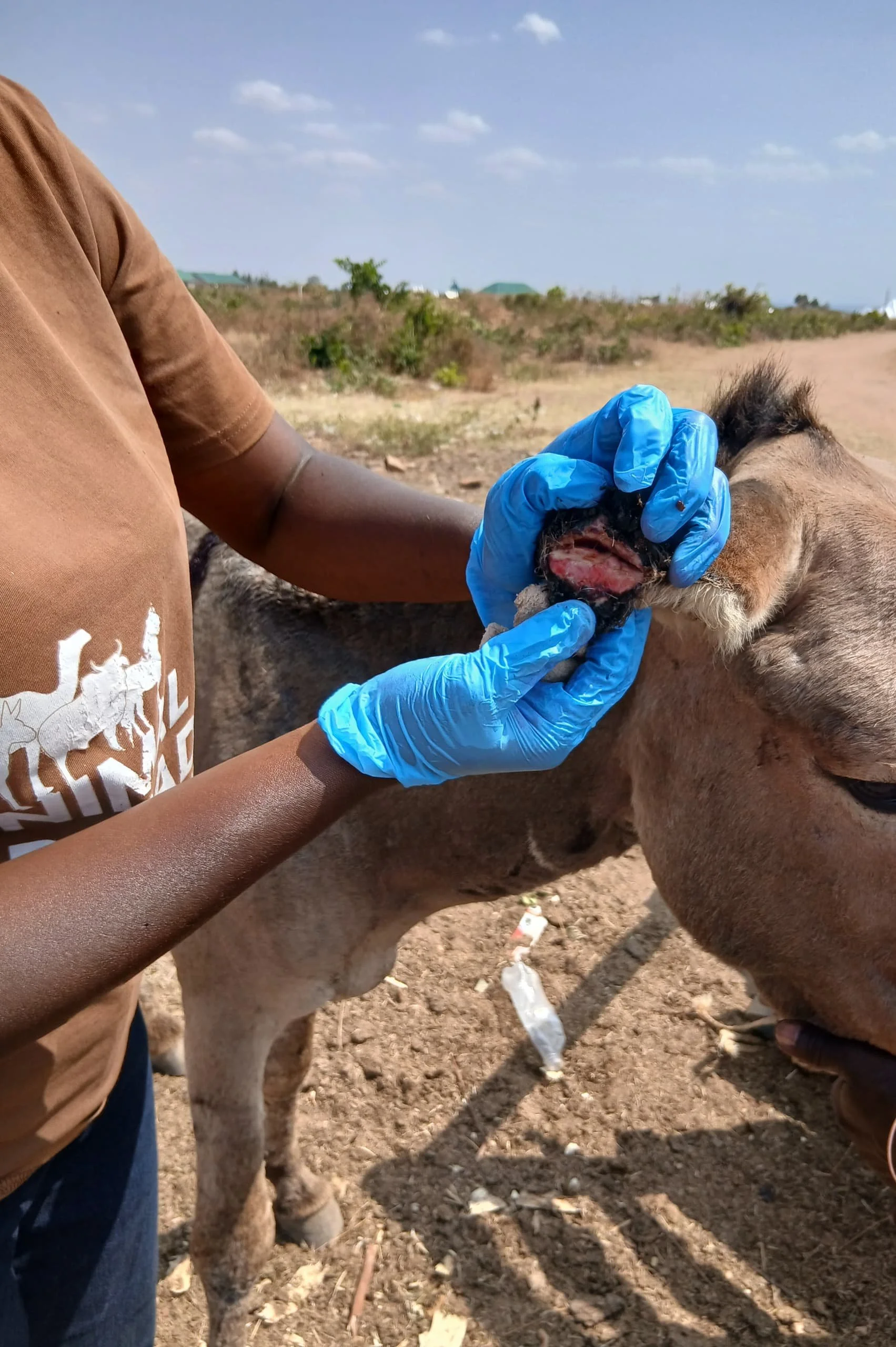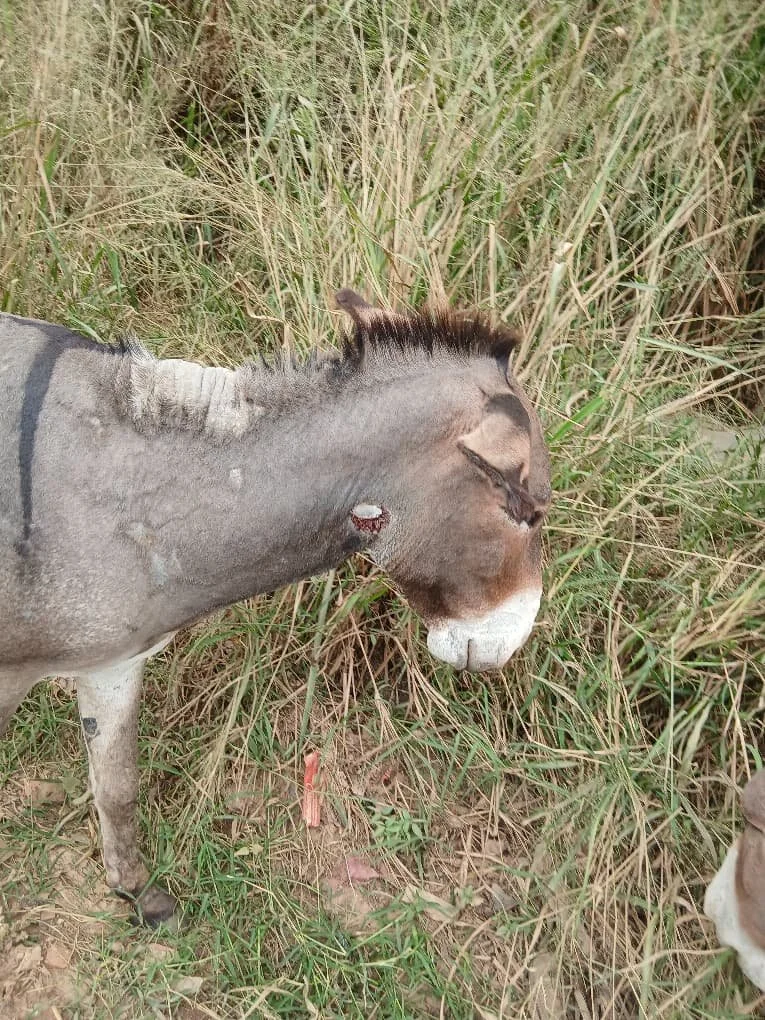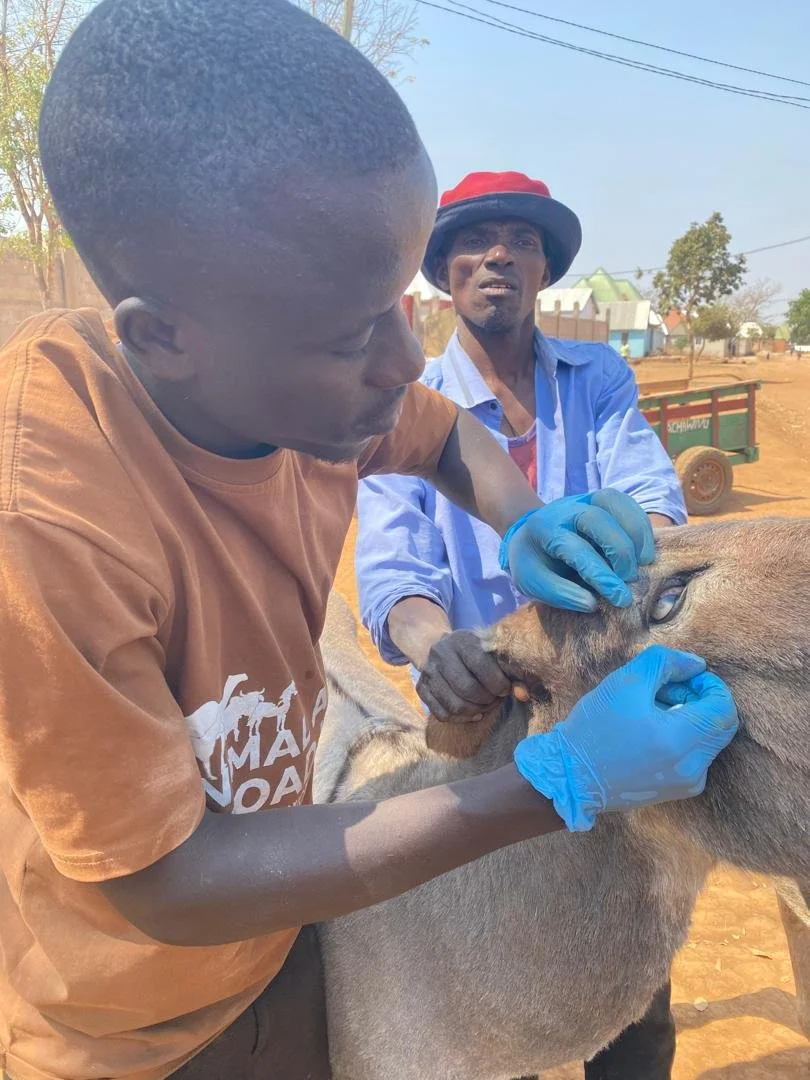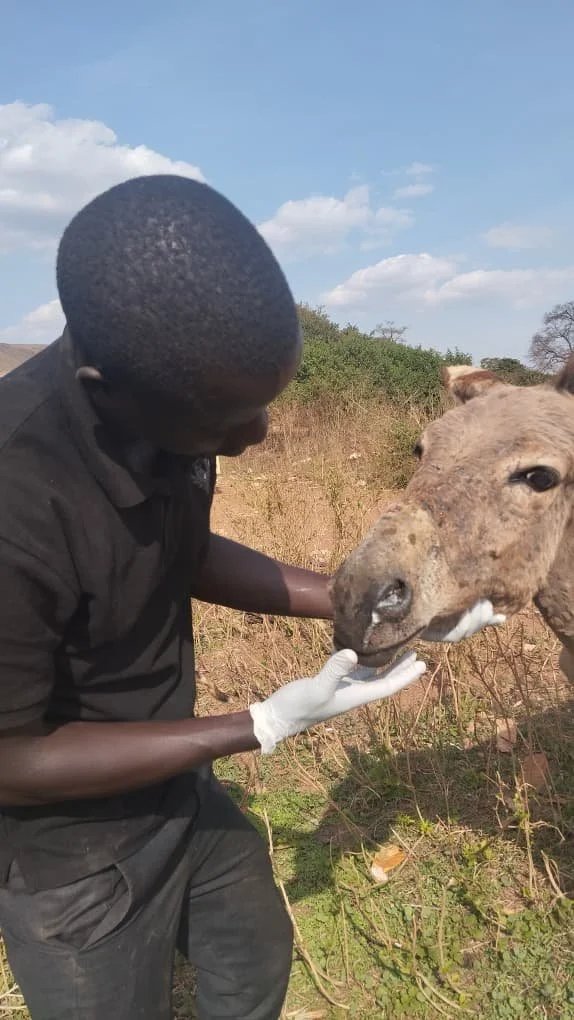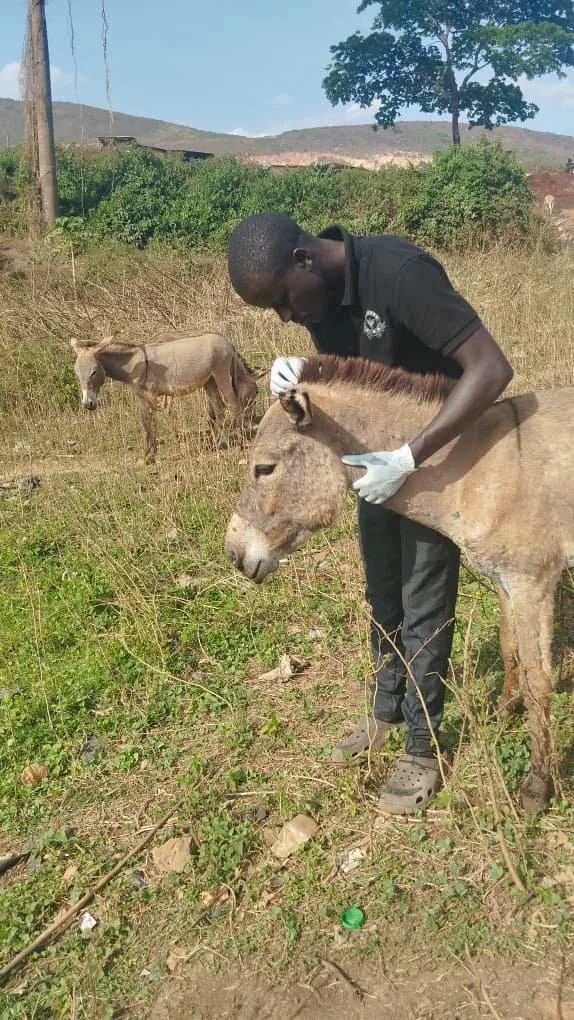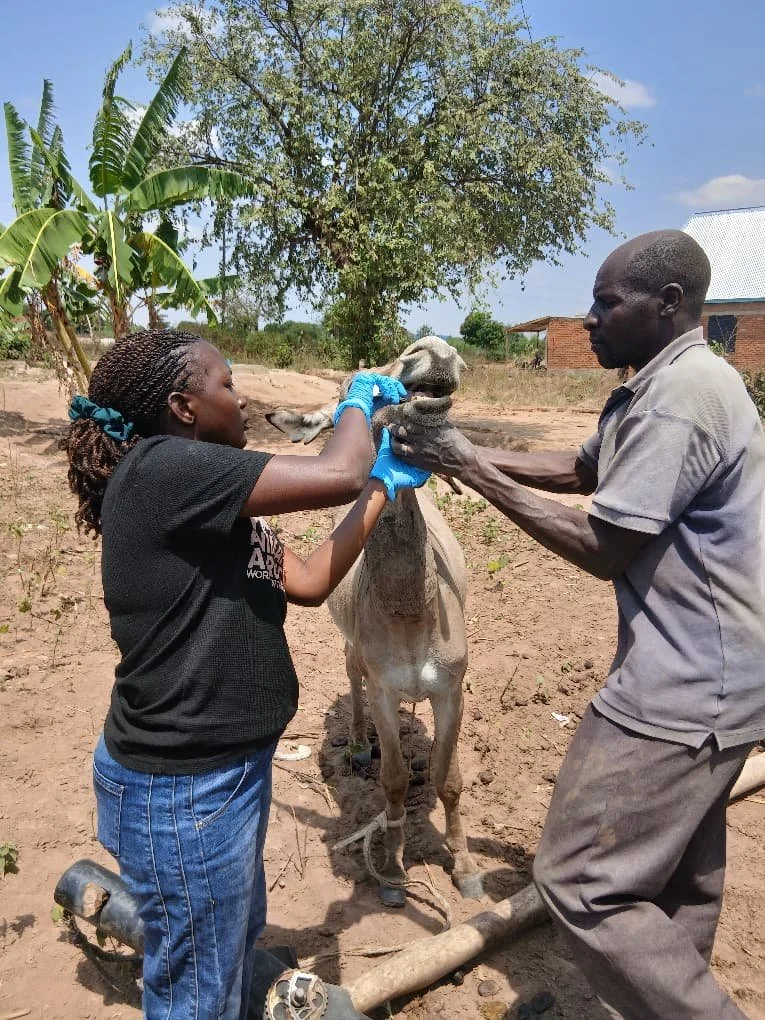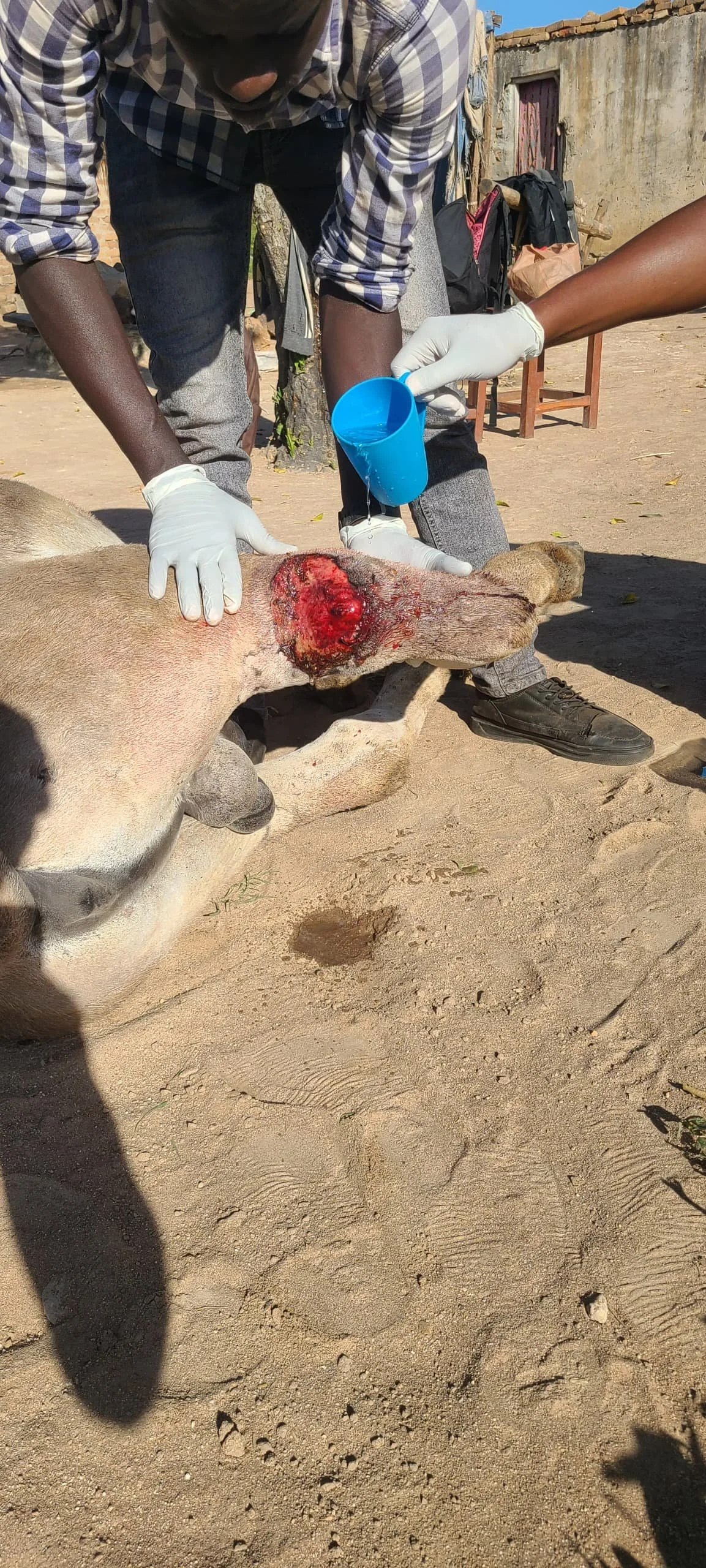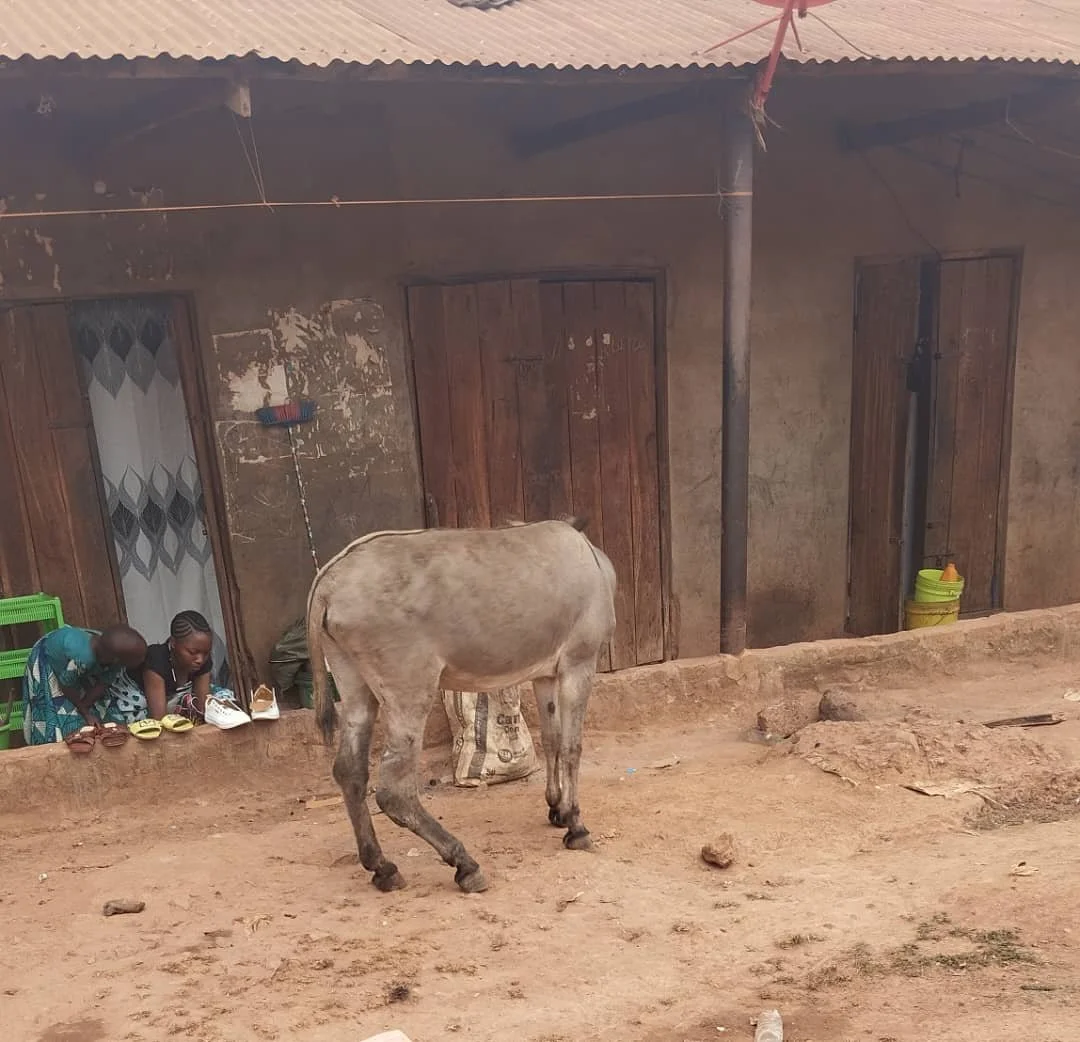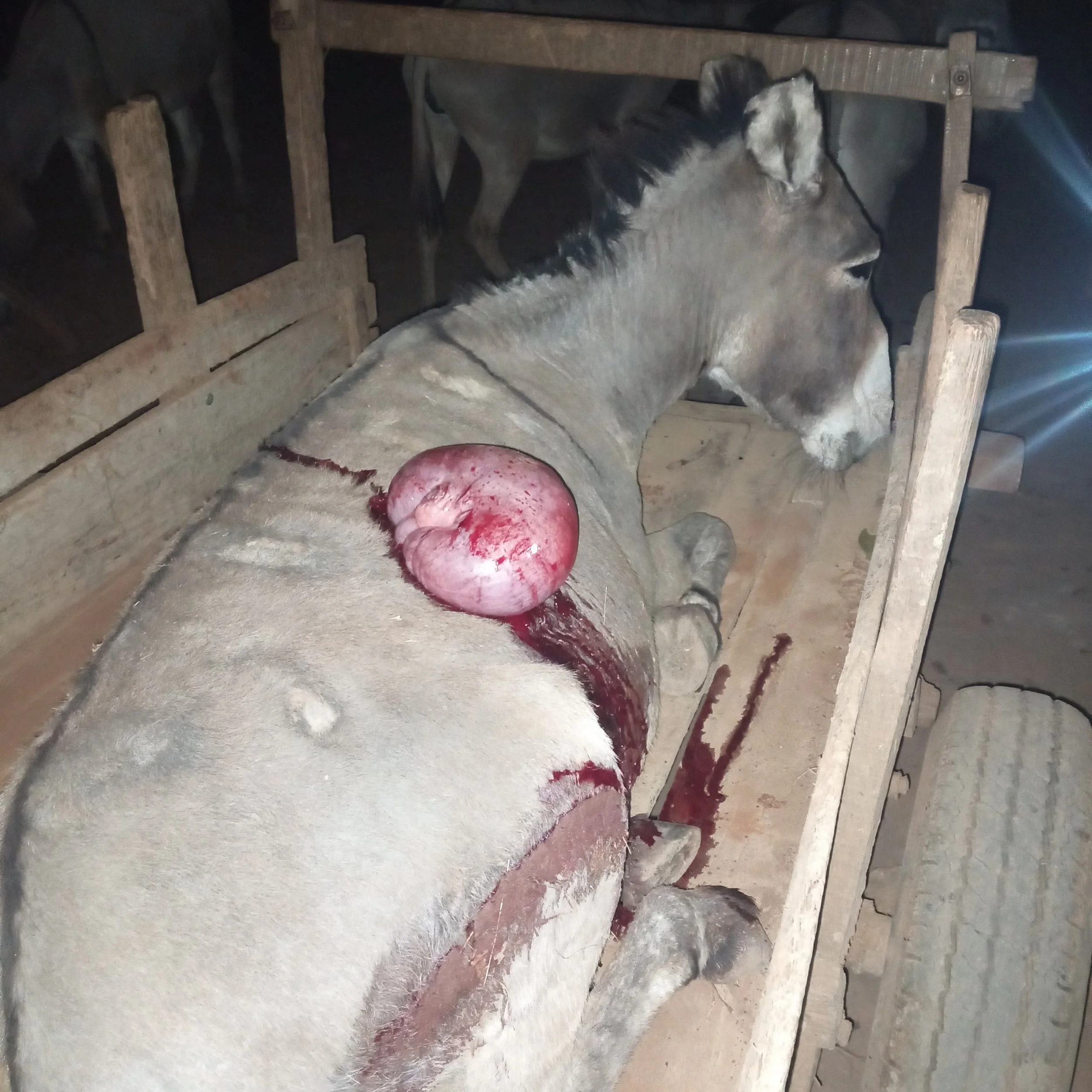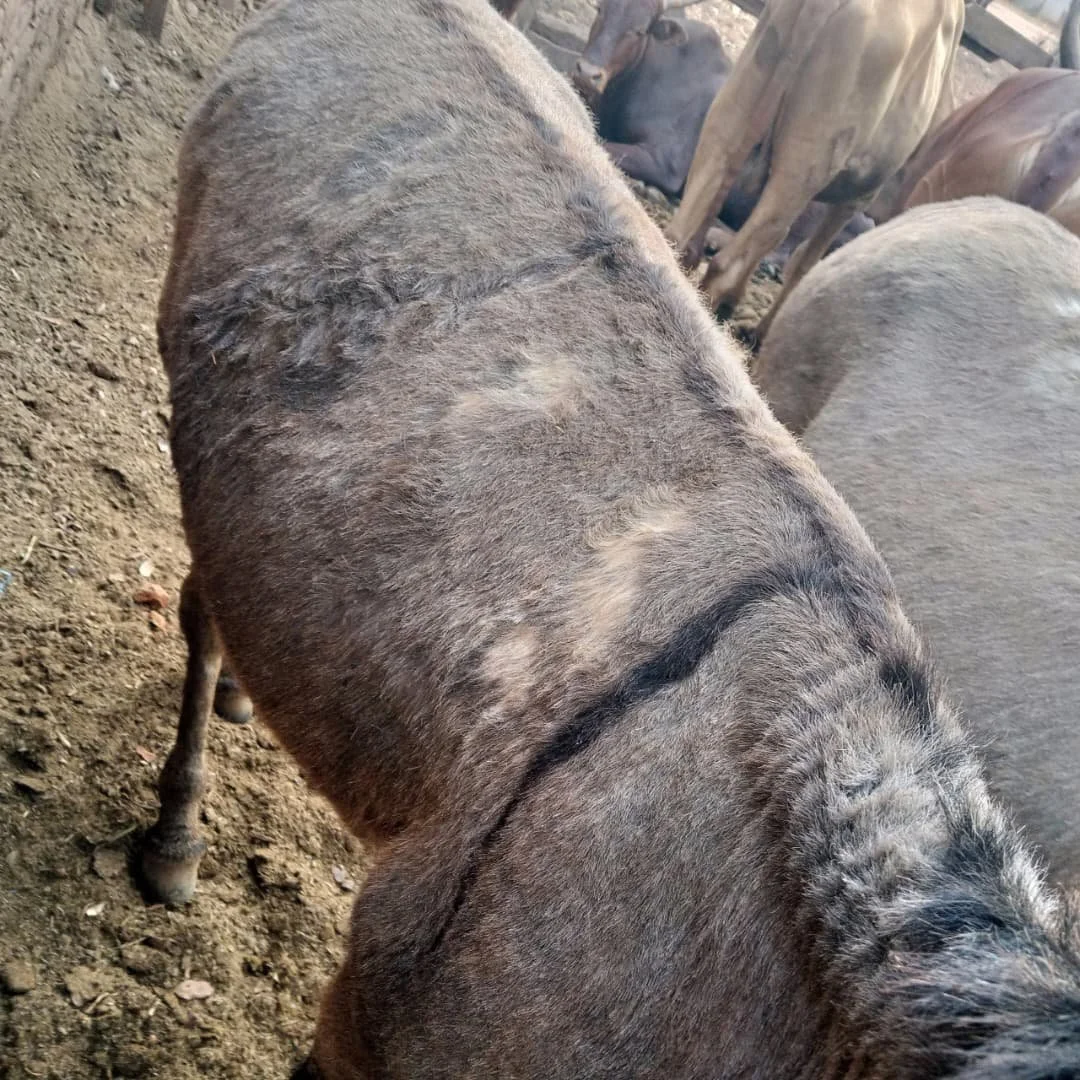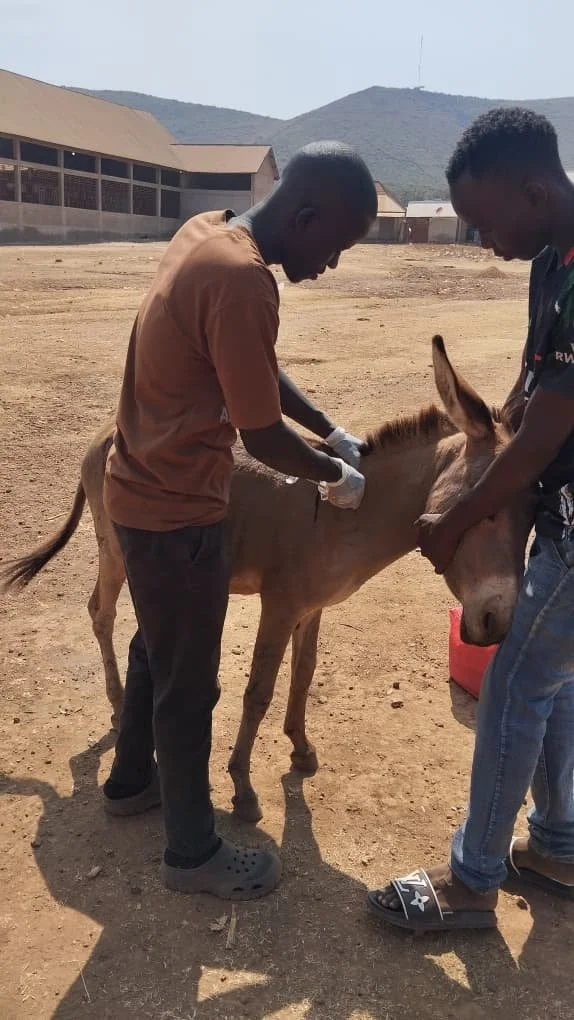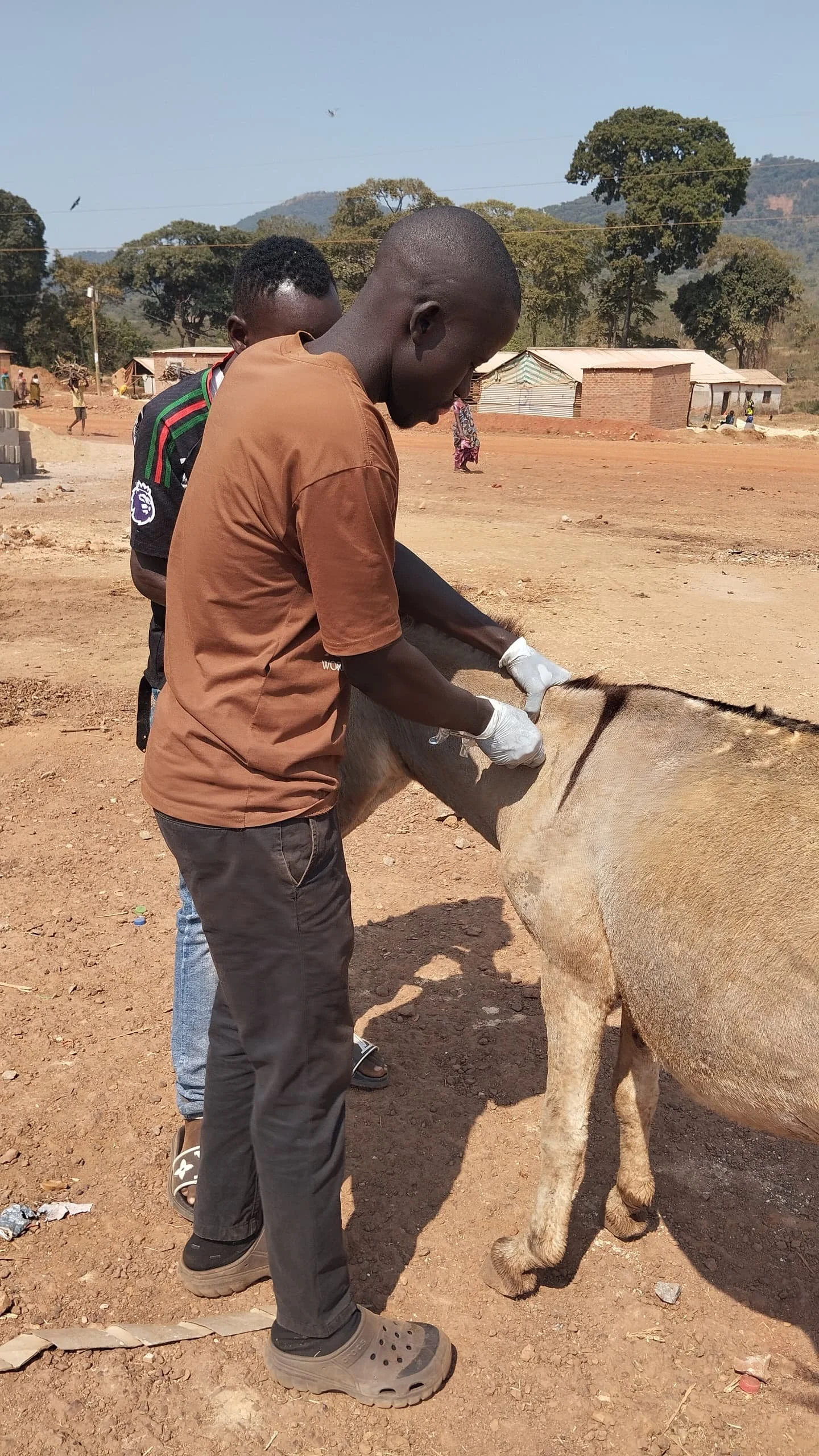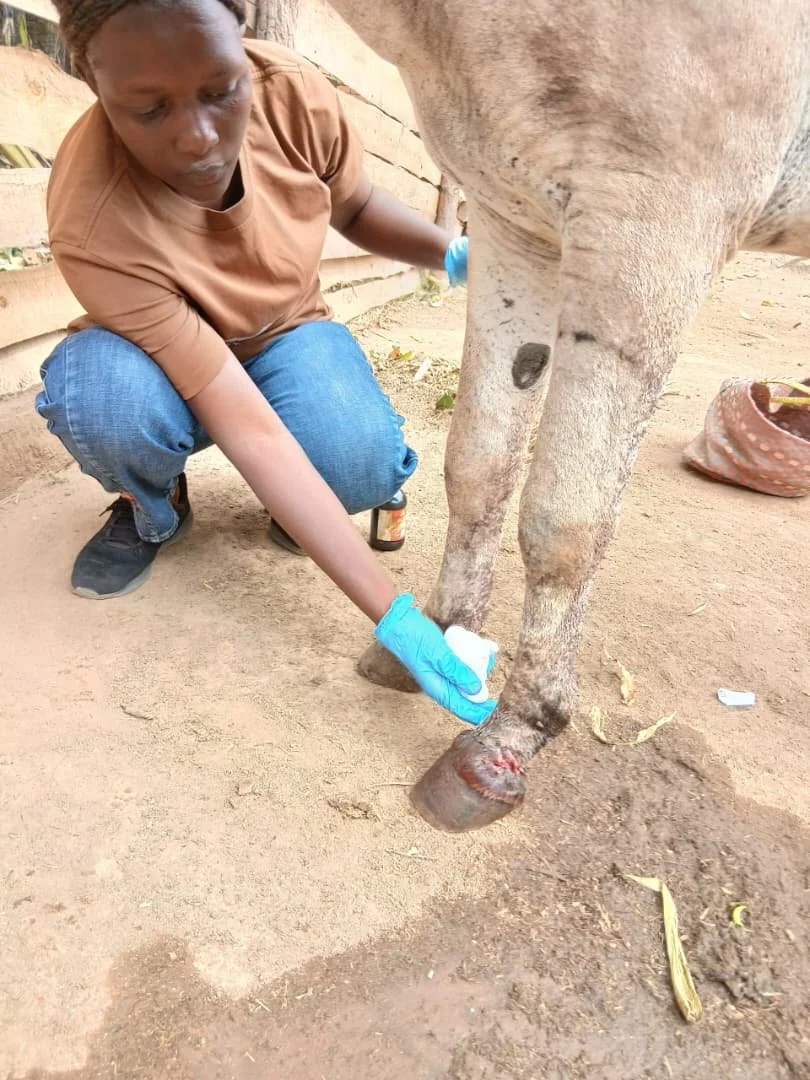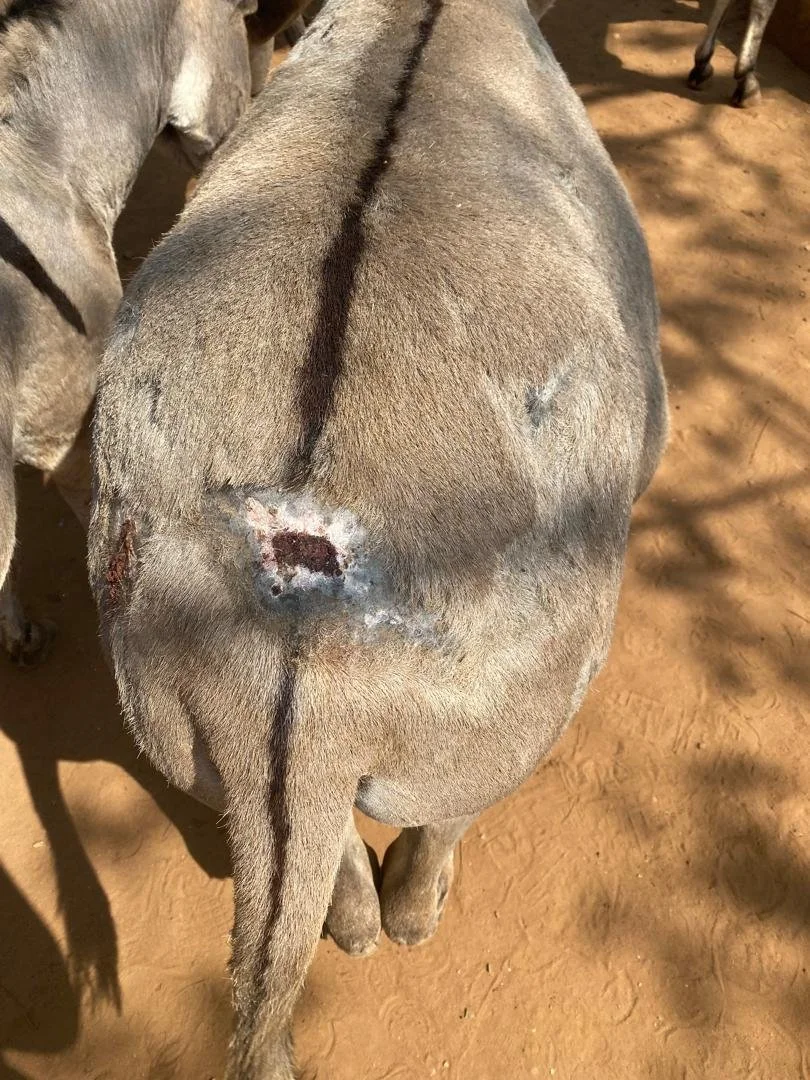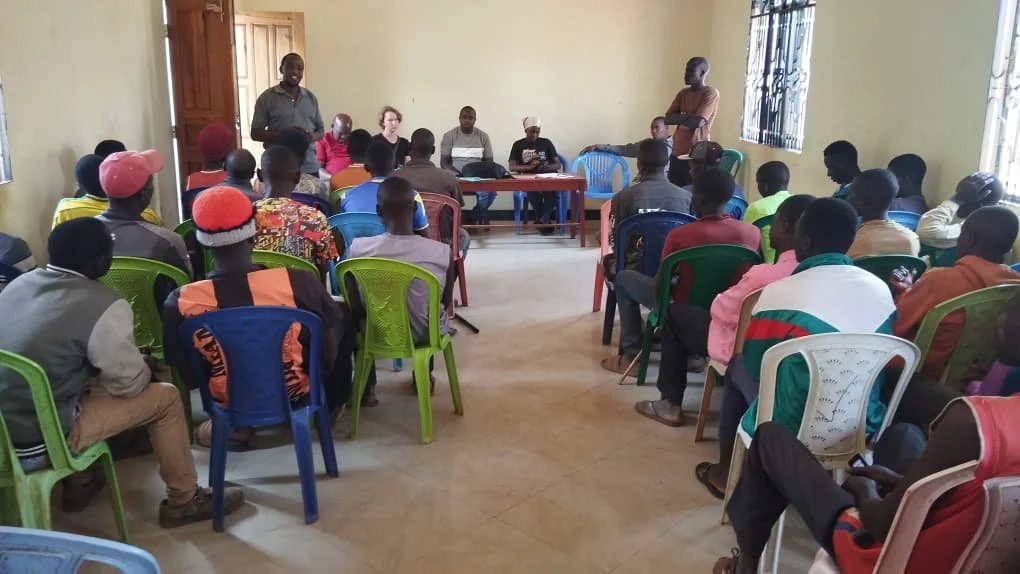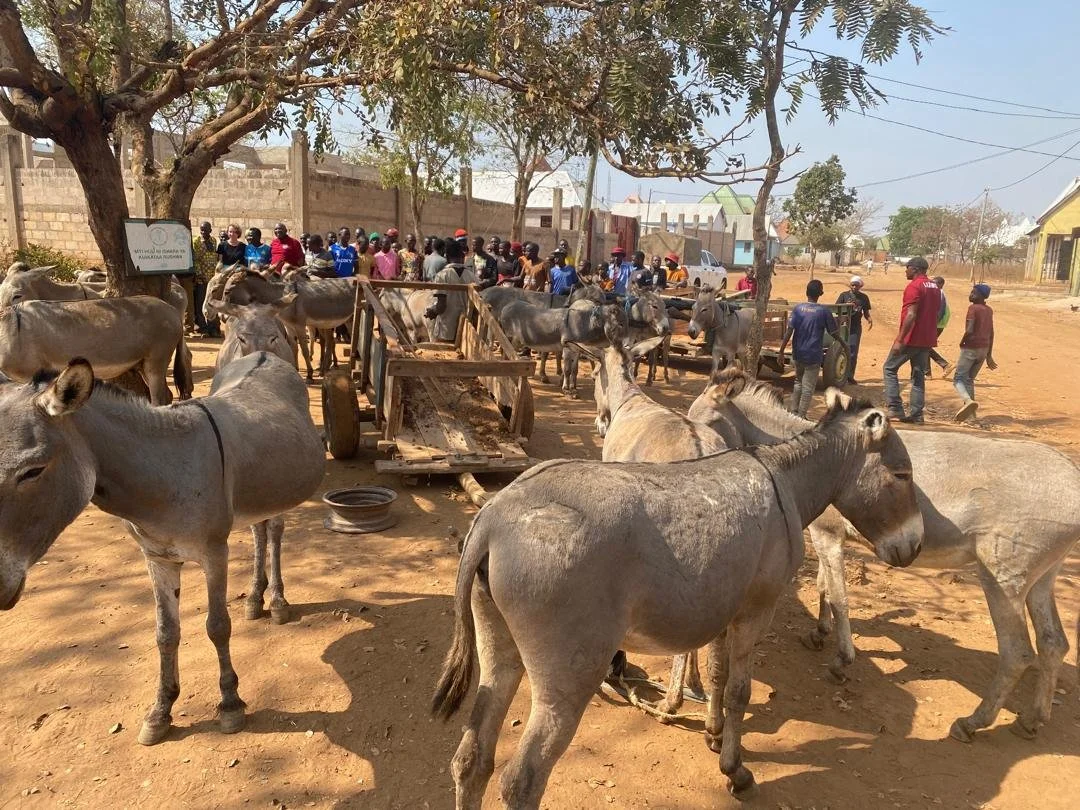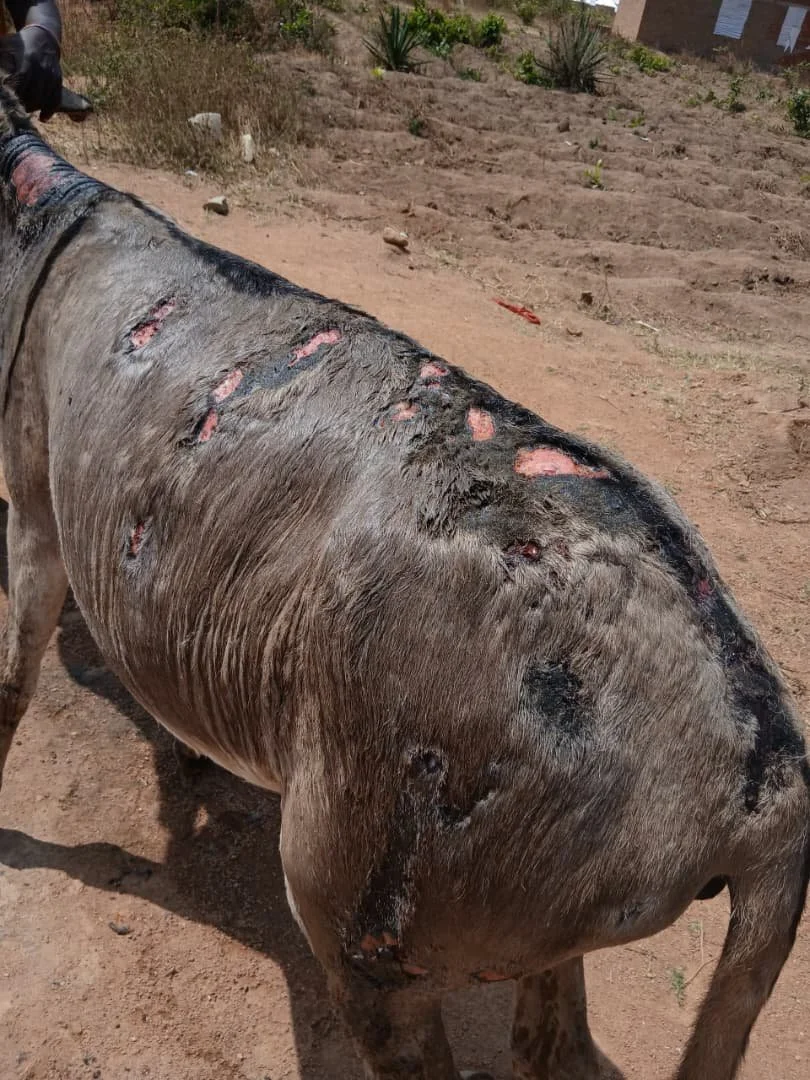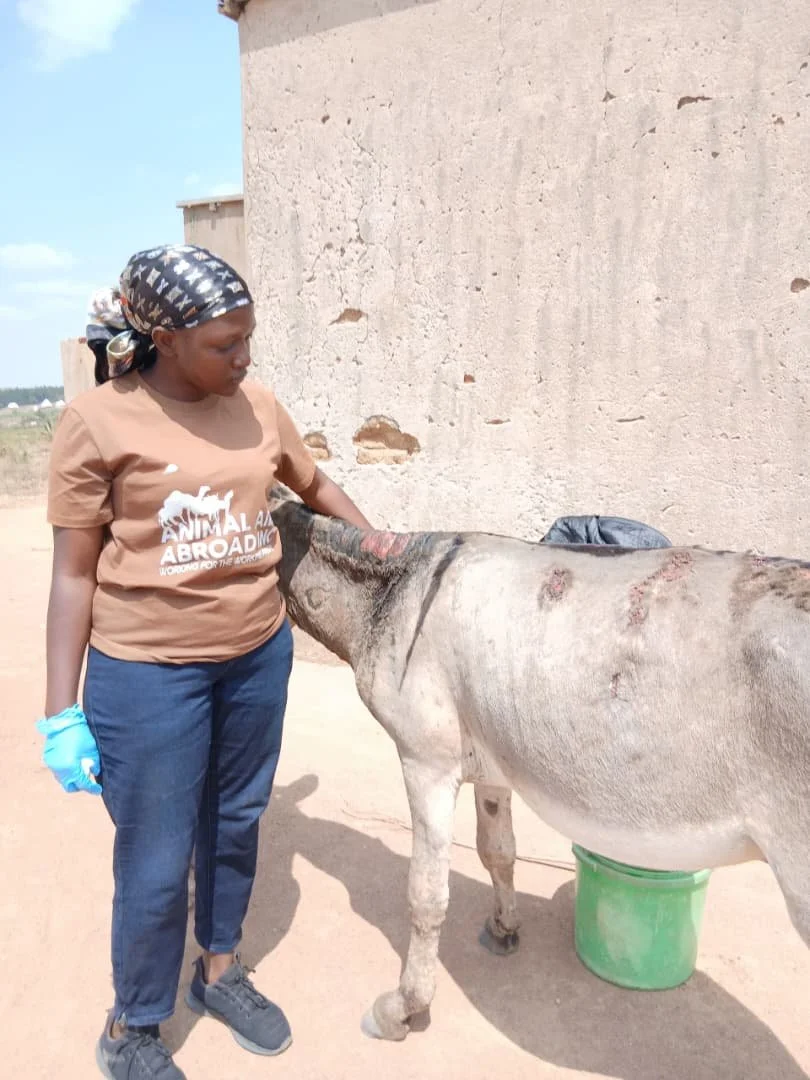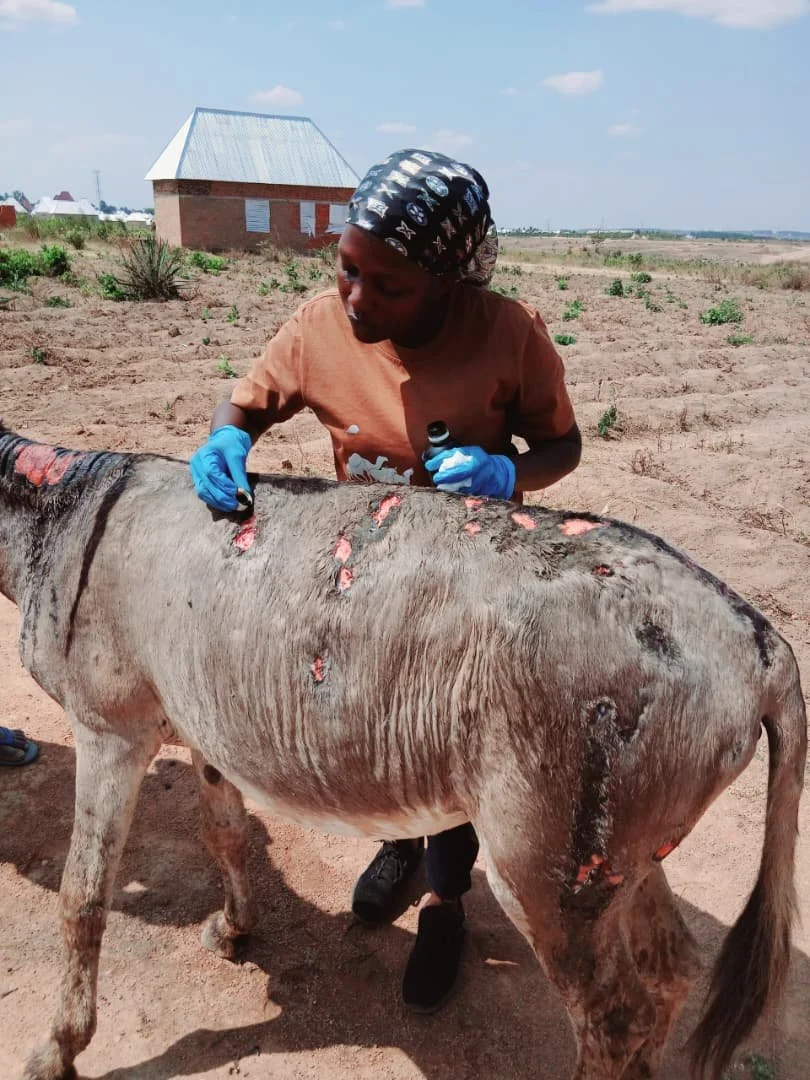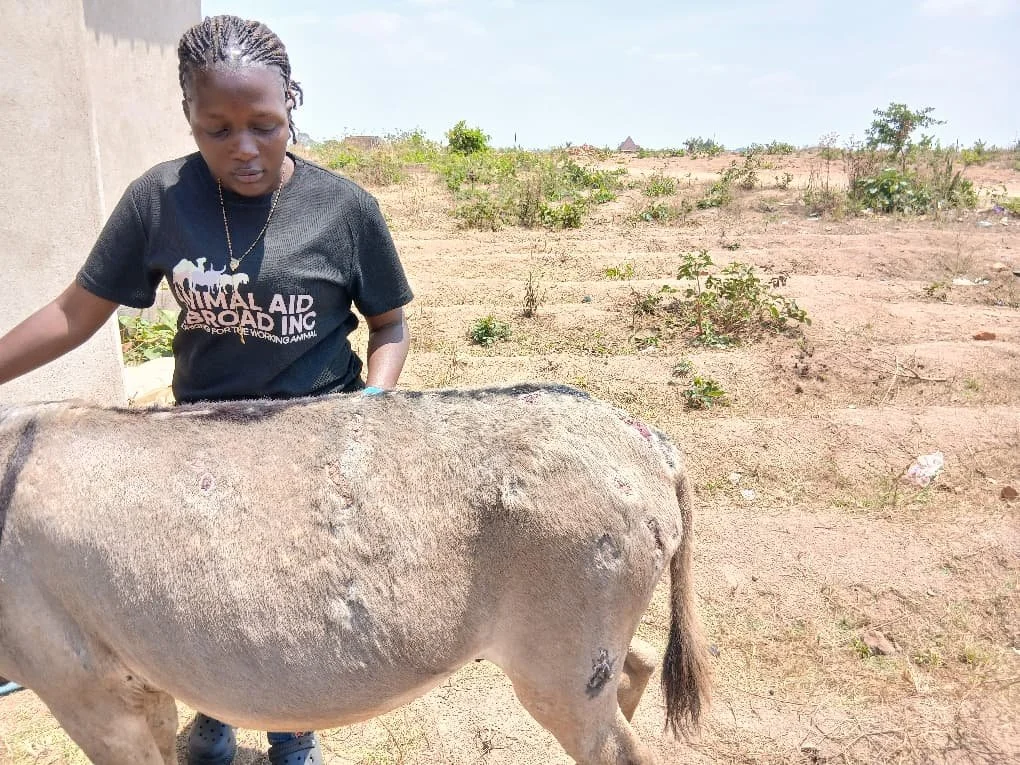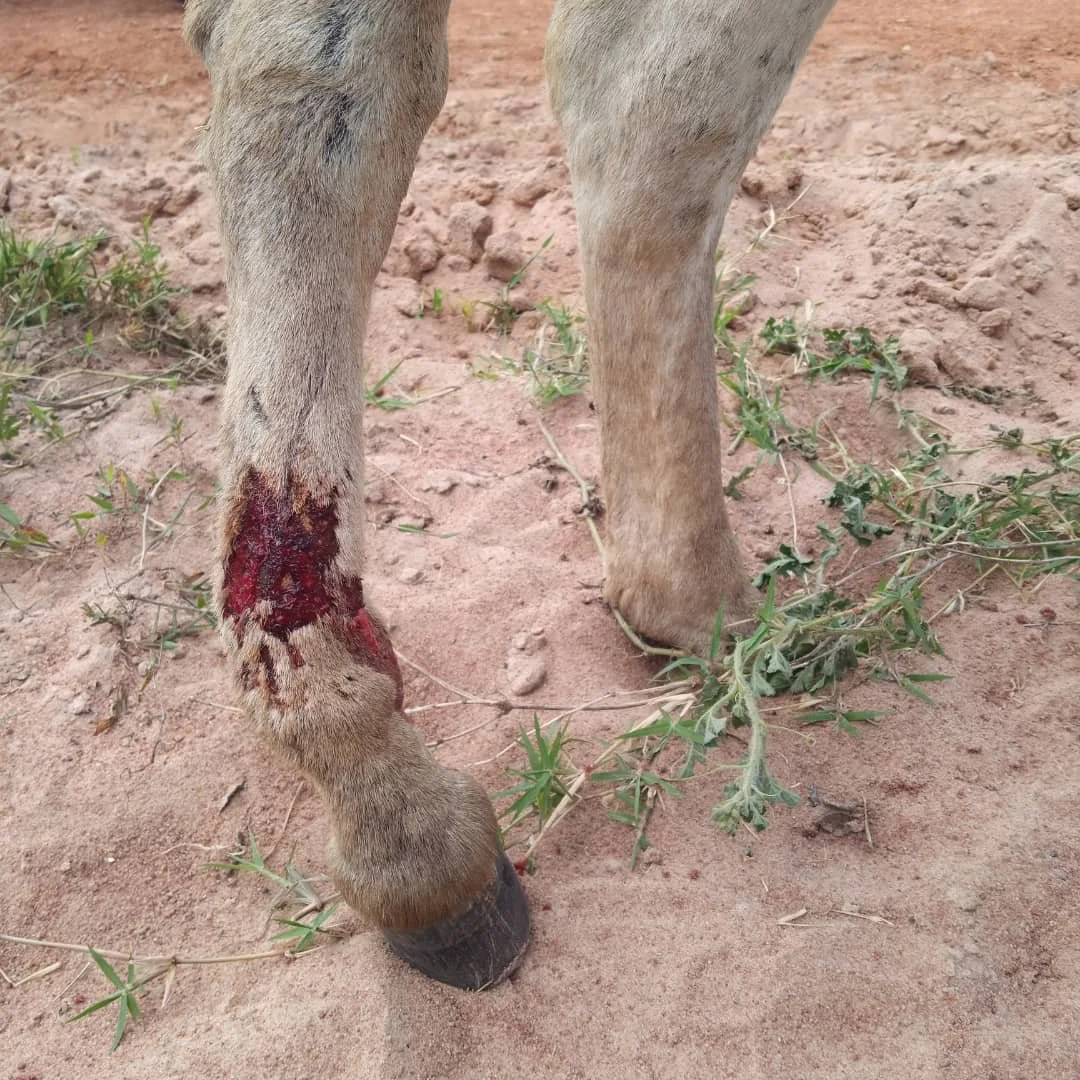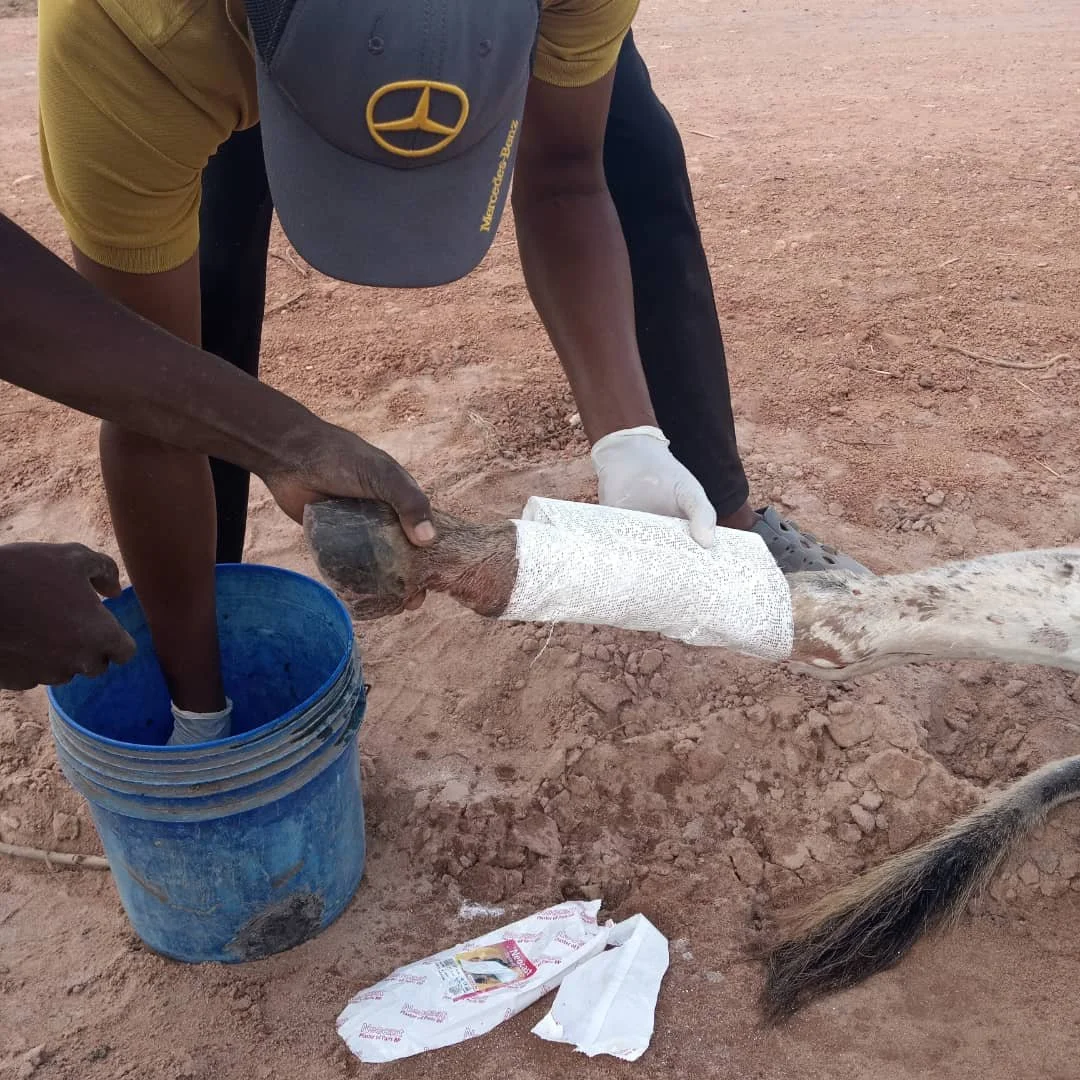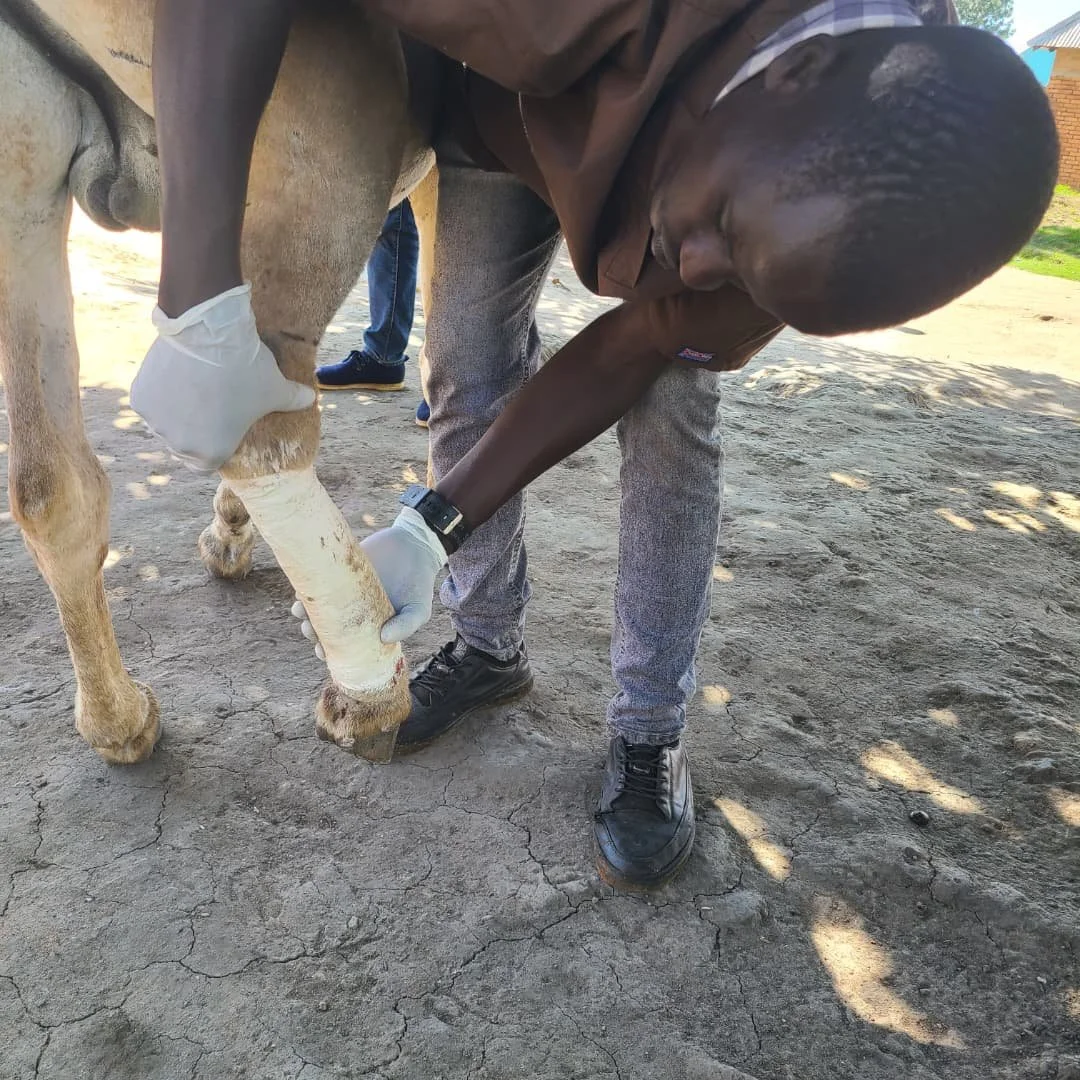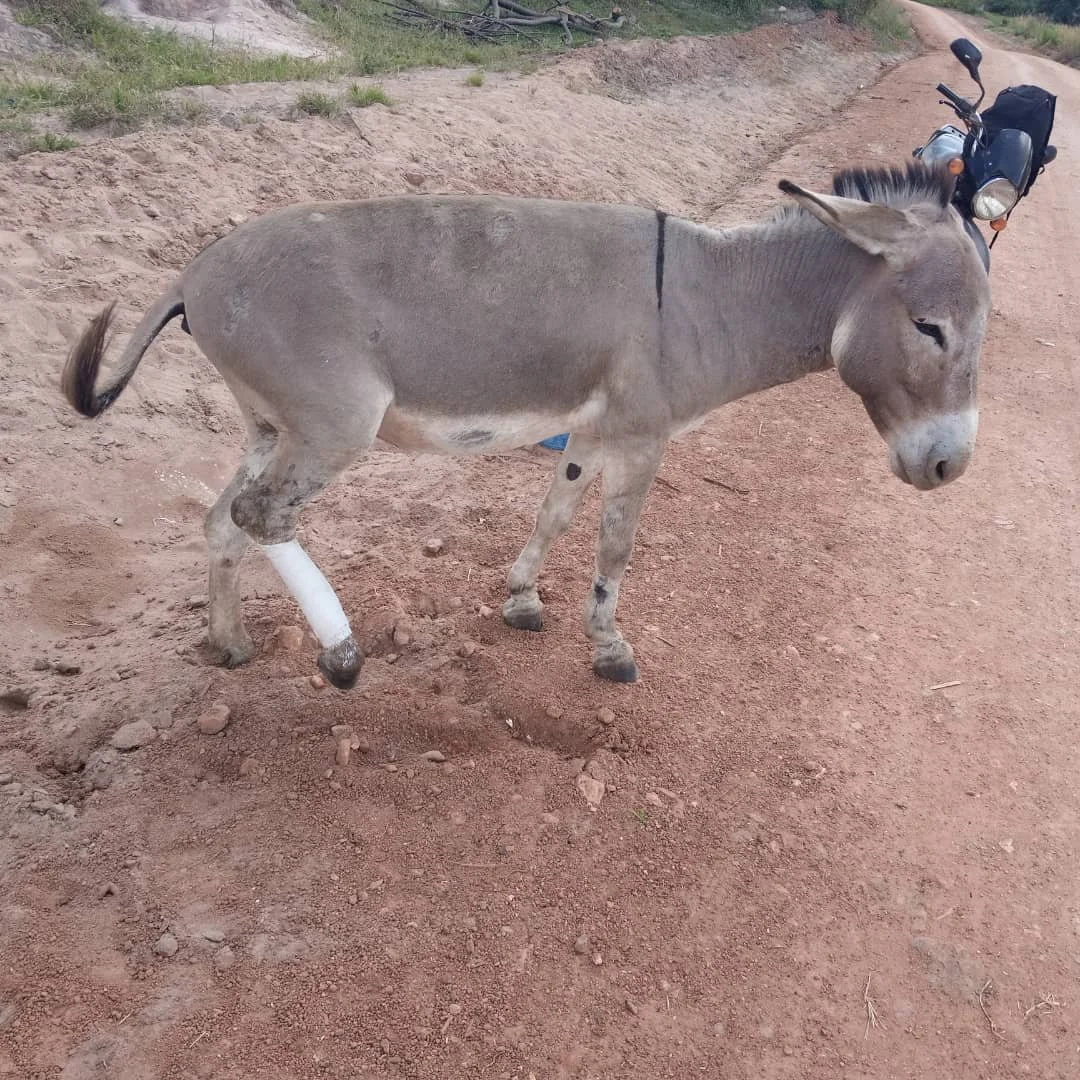Bringing Relief, Dignity & Compassion to Donkeys Working in Gold Mines
Donkeys working in gold mines in the Geita region of Tanzania have incredibly harsh lives. They endure rough terrain, extreme heat and exhausting work leading to wounds, injuries and diseases.
Thankfully, our partner group, Lake Zone Animal Welfare Organization (LAZAWO), are dedicated to reducing the suffering of these donkeys through veterinary care, owner education, humane equipment and community engagement
Read LAZAWO’s full report to see how your kind donations are helping vulnerable working donkeys:
1. Background
August was another month of our renewed dedication to the working donkeys of Geita’s six gold mines of Nyarugusu, Nyaruyeye, Stamico, Lwamgasa, Mgusu and Magenge. Day after day, these donkeys endure scorching heat and rugged terrain, silently carrying the weight of families’ livelihoods. Without veterinary care, their suffering would remain unseen and unspoken.
Through the generous support of Animal Aid Abroad (AAA), our presence brought relief and dignity. We managed wounds, fracture and diseases, and extended training to donkey owners and attendants. Each healed animal and every empowered owner became part of a larger story of compassion, resilience and restored hope for both the donkeys and the communities that depend on them.
2. Veterinary Activities
In August, we touched the lives of 442 donkeys, bringing relief from their pain and strength to their weary bodies. We also safeguarded 500 donkeys through booster vaccinations in Mgusu, Nyarugusu and Stamico, which will protect them from tetanus.
Many of the donkeys arrived with various ailments, including wounds from poor harnessing, exhaustion from overloading, digestive upsets, and skin diseases such as dermatophilosis. We also treated eye infections, abscesses, parasitic infestations, lameness, and one fracture that required special care.
Every donkey reminded us of their resilience and courage, motivating us to continue providing care and compassion to these hardworking animals who silently carry the burdens of mining life every day.
3. Follow-up Cases
3.1 Fully recovered Pano
Pano - a diligent and hardworking donkey from Lwamgasa - who was first reported missing in June and was later found with a severe hind leg injury. Thanks to your generous support, this vulnerable donkey received prompt and professional veterinary care.
From June until August, we maintained close, continuous follow-up visits, monitoring every step of Pano’s recovery. With meticulous care, patience and unwavering attention, Pano gradually regained strength and mobility.
Today, Pano stands fully recovered, returning to his usual work with renewed vigour. The joy and gratitude of his owner reflects the profound impact of timely intervention and dedicated care. This remarkable recovery is a testament to the difference your support makes in the lives of working donkeys like Pano.
3.2 Masanja, a humble donkey who endured a traumatic evisceration and has now fully recovered
Masanja - a gentle donkey belonging to Peter in Magenge - suffered a traumatic injury in July that was likely caused by a sharp object in an act of human cruelty. The incident, unfolding in the quiet of midnight, required an urgent response.
Thanks to the steadfast support of AAA, we intervened immediately, providing careful medical treatment and suturing the wound. By the end of August, our continuous follow-up care ensured Masanja fully healed, returning to her former strength and vitality.
Such a life-changing intervention would not have been possible without timely transport to reach Masanja and provide adequate treatment. Your support allowed us to act swiftly, save a life and rekindle hope in a heartbroken owner. Thank you for standing with us and with donkeys like Masanja, for whom every heartbeat matters.
3.3 General follow-ups
Throughout August, we visited every donkey we had treated, carefully checking on their recovery. These follow-ups focused on monitoring wound healing, supporting owners in providing proper home care, evaluating responses to treatments and spotting any complications early.
Owners shared encouraging feedback, with many treated donkeys showing visible improvements, and others fully restored to health. This ongoing care reminds us of the power of consistent community engagement and timely veterinary support in safeguarding the wellbeing of these hardworking animals.
4. Trainings and Outreach
In August, two field clinics and outreach sessions in Lwamgasa and Mgusu focused on humane donkey handling, proper feeding during the dry season, and basic preventive health.
A total of 296 donkeys received veterinary care and welfare assessments, while 66 owners and handlers were trained in practical welfare and handling techniques. To support long-term improvement, 50 padded collars and saddles were distributed, promoting the continued use of best practices in these communities.
4.1 Impacts of training and outreach
The effects of these field clinics and training is clear. Donkey owners who missed our free, locally-customised harnesses began padding their harnesses with cloth to reduce friction wounds, and fewer cases of collapsed donkeys were reported due to enforced rest and watering breaks.
Local government leadership has pledged to enforce donkey welfare by ensuring attendants avoid working donkeys during the hottest hours and prevent injured donkeys from working, with penalties for non-compliance. As a team, we are encouraged that strict implementation, alongside our continued presence, will significantly reduce unnecessary suffering for these humble animals.
5. Case Studies
5.1 Matia - silent suffering is now a story of healing
During our routine field visits in Magenge in early August, we encountered Matia - a gentle female donkey in a heartbreaking state of distress. We observed her body was marked with multiple cutaneous wounds; some old and neglected, others freshly inflicted by heavy harnessing and harsh whipping from her attendant. Witnessing such a noble soul forced to endure suffering while still labouring to sustain her owner’s family weighed heavily on our hearts.
We intervened immediately. Each wound was meticulously cleaned with antiseptics, dressed well, and managed with anti-inflammatory medication. Over successive follow-ups, the wounds began to dry and close, and healing blossomed across her once-tormented body.
Today, Matia has regained her strength. Her eyes shine brighter, her steps are steadier, and she acts as a living testimony that compassion and proper care can transform pain into peace. Our team feels profoundly grateful to witness such transformations of these helpless donkeys thanks to your kind support.
5.2 Mashabala’s triumph over a hind limb fracture
We received an urgent call from a donkey owner in Stamico that his diligent donkey, Mashabala, was in severe distress after sustaining a hind limb fracture. While pulling a cart loaded with stones at a gold sand excavation site, a large stone accidentally fell and struck Mashabala’s right hind limb, leaving him in pain and unable to bear weight.
Upon arrival, we found Mashabala with a visibly curved distal right hind limb and showing clear signs of distress. On physical examination, we diagnosed a closed fracture of the long pastern bone of the right hind limb. Under anaesthesia, the fracture was carefully aligned, stabilised, and a Plaster of Paris (P.O.P) cast was professionally applied. Pain management was also closely monitored.
At the time of this report, Mashabala has begun bearing weight on his leg and is showing remarkable progress. He is expected to gradually regain full mobility soon. Through our timely intervention - made possible by your kindness - Mashabala’s pain and suffering were reduced and severe complications were avoided.
His owner has expressed profound gratitude, describing our swift response as bringing joy and relief. Mashabala’s story is a heartfelt testament as to how your support transforms the pain of Geita’s hardworking donkeys into tales of care, hope and renewed strength.
6. Gaps and Challenges
As highlighted in earlier reports, our diagnostic capacity in the field remains limited, which sometimes delays prompt and accurate interventions. Key tools such as a microscope with essential reagents for blood smears and other basic tests, alongside a portable ultrasound and nasogastric tube for colic management and other gastrointestinal conditions, are needed to enhance onsite diagnostics and timely care.
We are sincerely grateful that Neil will be bringing an ophthalmoscope and microscope in October. Your continued support not only strengthens our veterinary services but also directly improves the health and wellbeing of the hardworking donkeys of Geita, whose welfare depends on timely and effective care.
7. Appreciation
Working donkeys in Geita’s gold mines face injuries, wounds and endless toil. Without LAZAWO and funding from AAA, their suffering would remain silent. Your donations transforms their pains into hope. Words alone cannot express the depth of our gratitude for your role in healing these donkeys and improving their lives.
Hundreds have been vaccinated, treated and protected, while communities learn to better care for their animals. Each act of your trust becomes healing, and each gesture of solidarity gives voice to the voiceless. From dusty mine paths to grateful hearts, your support shines as a beacon of hope. Thank you to each and every AAA donor.
